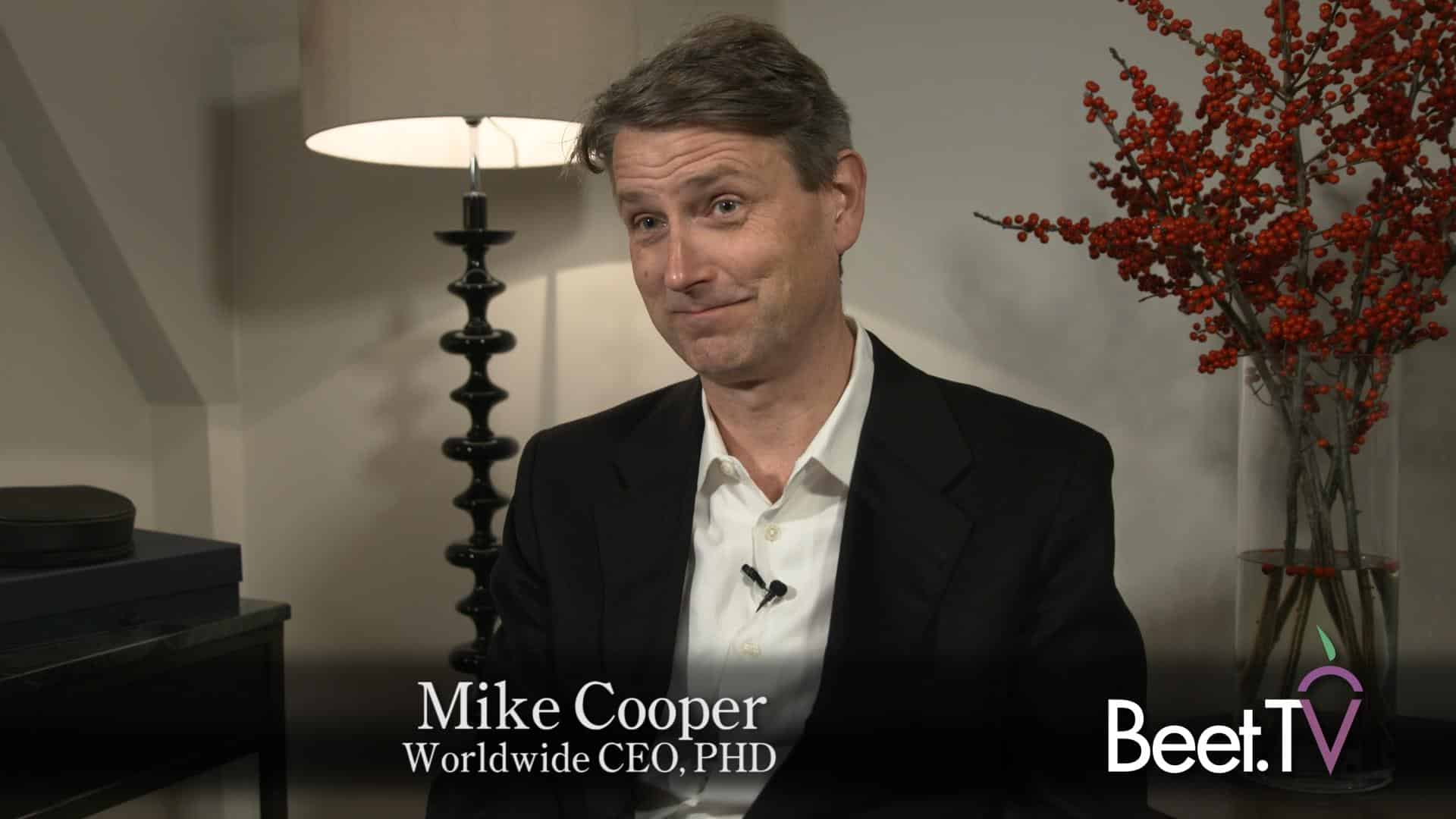
LONDON — The ad world is only just getting its head around the technology-driven ability to super-target ads at human beings. But, pretty soon, it may need to focus its attention on those humans’ personal assistant software, a leading ad exec says.
Omnicom’s PHD worldwide CEO Mike Cooper says the emergence of virtual personal assistants – intelligent digital agents that perform tasks for owners based on user input, location awareness, and the ability to access information from a variety of online sources – “is going to be completely game-changing for our business”.
“The next generation of Siri will interact with the apps on your phone, which starts to get quite interesting,” Cooper tells Beet.TV.
“Your VPA, if you miss your airplane, is going to make decisions on your behalf – it’s going to rebook the airline.”
Here’s where things start to get weird. More than trying to reach users with messages, brands will need to reach their virtual assistants instead, Cooper says.
“You need to market to algorithms rather than the frontal cortex of people’s brains.,” he says. “At a micro-decisioning level, you need to re-think how you deal with that process in order to market your goods or services.”
Consulting firm Frost & Sullivan has pegged intelligent assistants as a growth trend in 2016, as Facebook’s M and Baidu’s Duer join Microsoft’s Cortana, Apple’s Siri and Google’s Now.
Cooper isn’t expecting to see these developments at January’s upcoming CES show – better wait two more years, he reckons. But he is warning every ad agency to start thinking about the implications today.
We interviewed in London last week for our series “The Road to CES” — our preview of trends and topics to be discussed in January in Las Vegas. For more videos from the series, please visit this page. The series is sponsored by YuMe.